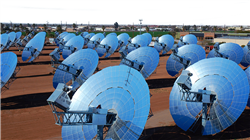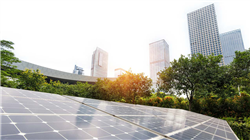University certificate
The world's largest faculty of engineering”
Description
With this 100% online Postgraduate diploma, you will develop the most innovative strategies to improve the operation and maintenance of Photovoltaic Installations"

In the fight against climate change, photovoltaic solar energy has played a crucial role, contributing significantly to the reduction of CO2 emissions. A report by the International Renewable Energy Agency shows that PV installations helped to avoid approximately 900 million tons of CO2 emissions. In this context, the efficient operation of these plants is essential to maximize both their environmental and economic benefits. Given these challenges, engineers need to stay at the forefront of the most innovative techniques for minimizing environmental impact and optimizing the use of resources.
In this framework, TECH launches a revolutionary Postgraduate diploma in Operation of Photovoltaic Installations. Made up of 10 specialized modules, the academic itinerary will delve into the operation of the direct current components of photovoltaic plants. Along the same lines, the syllabus will analyze in detail the main inverter technologies. In this way, graduates will be able to design more flexible and adaptable systems. During the course of the program, students will develop advanced skills to identify potential risks in electrical systems and design mitigation strategies to reduce the probability of malfunction.
As for the methodology of this university program, it should be noted that it reinforces its innovative character. TECHprovides students with a 100% online educational environment, thereby adapting to the needs of busy professionals who want to advance their careers. It also employs the Relearning teaching system, based on the repetition of key concepts to fix knowledge and facilitate learning. In this way, the combination of flexibility and a robust teaching approach makes it highly accessible. The only thing engineers will need is an electronic device with an Internet connection in order to access the Virtual Campus and enjoy the most dynamic teaching materials available on the educational market.
This program gives you the opportunity to update your knowledge in a real scenario, with the utmost scientific rigor of an institution at the forefront of technology"
This Postgraduate diploma in Operation of Photovoltaic Installations contains the most complete and up-to-date scientific program on the market. The most important features include:
- The development of case studies presented by experts in Photovoltaic Energy
- The graphic, schematic, and practical contents with which they are created, provide practical information on the disciplines that are essential for professional practice
- Practical exercises where the self-assessment process can be carried out to improve learning
- Its special emphasis on innovative methodologies
- Theoretical lessons, questions to the expert, debate forums on controversial topics, and individual reflection assignments
- Content that is accessible from any fixed or portable device with an Internet connection
You will delve into Alternating Current Electrical Protections and safeguard the components of the electrical system in case of voltage fluctuations"
The program’s teaching staff includes professionals from the field who contribute their work experience to this educational program, as well as renowned specialists from leading societies and prestigious universities.
The multimedia content, developed with the latest educational technology, will provide the professional with situated and contextual learning, i.e., a simulated environment that will provide immersive education programmed to prepare for real situations.
This program is designed around Problem-Based Learning, whereby the professional must try to solve the different professional practice situations that arise during the course. For this purpose, the students will be assisted by an innovative interactive video system created by renowned and experienced experts.
Do you want to incorporate into your practice the most innovative maintenance strategies to detect system failures? Achieve it with this program in only 540 hours"

With TECH's Relearning system you will reduce the long hours of study and memorization. You will enjoy a completely natural learning experience!"
Syllabus
Through this university program, engineers will have a holistic understanding of the generation and conversion of solar photovoltaic energy. The syllabus will delve into the operation of the components that are part of a photovoltaic installation, analyzing their characteristics and selection criteria. Likewise, the syllabus will delve into the assembly of the plants, taking into account factors ranging from the treatment of incidents to the maintenance of self-consumption installations without batteries. In this way, graduates will develop skills to manage the daily operations of Photovoltaic Installations, ensuring their optimal functioning.

You will be able to collect, analyze and interpret operational data to optimize the performance of photovoltaic systems and detect problems early"
Module 1. Direct Current Photovoltaic Installations
1.1. Solar Cell Technologies
1.1.1. Solar Technologies
1.1.2. Evolution by Technology
1.1.3. Comparative Analysis of the main Commercial Technologies
1.2. Photovoltaic Modules
1.2.1. Electrical Technical Parameters
1.2.2. Other Technical Parameters
1.2.3. Technical Regulatory Framework
1.3. Photovoltaic Module Selection Criteria
1.3.1. Technical Criteria
1.3.2. Economic Criteria
1.3.3. Other Criteria
1.4. Optimizers and Regulators
1.4.1. Optimizers
1.4.2. Regulators
1.4.3. Advantages and Disadvantages
1.5. Battery Technologies
1.5.1. Types of Cells
1.5.2. Evolution by Technology
1.5.3. Comparative Analysis of the main Commercial Technologies
1.6. Technical Parameters of Batteries
1.6.1. Technical Parameters of Lead-Acid Batteries
1.6.2. Technical Parameters of Lithium Batteries
1.6.3. Durability, Degradation and Efficiency
1.7. Batteries Selection Criteria
1.7.1. Technical Criteria
1.7.2. Economic Criteria
1.7.3. Other Criteria
1.8. Direct Current Electrical Protections
1.8.1. Protection Against Direct and Indirect Contacts
1.8.2. Protection Against Overvoltage
1.8.3. Other Protections
1.8.3.1. Grounding, Insulation, Overload and Short-Circuit Systems
1.9. Direct Current Wiring
1.9.1. Type of Wiring
1.9.2. Wiring Selection Criteria
1.9.3. Dimensioning of Wiring, Conduits, Cable Ducts, Cable Boxes
1.10. Fixed and Solar Tracking Structures
1.10.1. Types of Structures with Solar Tracking. Materials
1.10.2. Types of Structures with Solar Tracking. One or Two Axes
1.10.3. Advantages and Disadvantages of the Type of Solar Tracking
Module 2. Alternating Current Photovoltaic Installations
2.1. Inverter Technology
2.1.1. The Inverter Technology
2.1.2. Evolution by Technology
2.1.3. Comparative Analysis of the main Commercial Technologies
2.2. Technical Parameters of the Inverters
2.2.1. Electrical Technical Parameters
2.2.2. Other Technical Parameters
2.2.3. International Normative Framework
2.3. Inverters Selection Criteria
2.3.1. Technical Criteria
2.3.2. Economic Criteria
2.3.3. Other Criteria
2.4. Transformer Technology
2.4.1. Classification of Transformer Technologies
2.4.2. Evolution by Technology
2.4.3. Comparative Analysis of the main Commercial Technologies
2.5. Technical Parameters of Transformers
2.5.1. Electrical Technical Parameters
2.5.2. High-Voltage Switchgear: Switches, Disconnectors and Self-Operated Valves
2.5.3. International Normative Framework
2.6. Transformers Selection Criteria
2.6.1. Technical Criteria
2.6.2. Economic Criteria
2.6.3. Other Criteria
2.7. Alternating Current (AC) Electrical Protections
2.7.1. Protection Against Indirect Contacts
2.7.2. Protection Against Overvoltage
2.7.3. Other Protections: Grounding, Overload and Short-Circuit Systems
2.8. Alternating Current and Low Voltage Wiring
2.8.1. Type of Wiring
2.8.2. Wiring Selection Criteria
2.8.3. Wire Sizing. Conduits, Manholes
2.9. High-Voltage Wiring
2.9.1. Type of Wiring, Poles
2.9.2. Wiring Selection Criteria, Layouts, Poles, Declaration of Public Utility
2.9.3. Wire Sizing
2.10. Civil Works
2.10.1. Civil Works
2.10.2. Accesses, Rainwater Outlets Drainage, Enclosures, etc.
2.10.3. Electrical Evacuation Networks. Transport Capacity
Module 3. Assembly, Operation and Maintenance of Photovoltaic Plants
3.1. Assembly of Photovoltaic Plants
3.1.1. Health and Safety
3.1.2. Selection of Equipment on the Market
3.1.3. Incident Management
3.2. Commissioning of Photovoltaic Plants. Technical Aspects
3.2.1. Commissioning Operations
3.2.2. Grid Codes. Control Center
3.2.3. Incident Management. Thermography, Electroluminescence, Certifications
3.3. Commissioning of Self-Consumption Installations. Technical Aspects
3.3.1. Commissioning Operations
3.3.2. Monitoring
3.3.3. Incident Management. Thermography, Electroluminescence, Certifications
3.4. Commissioning of Off-Grid Installations. Technical Aspects
3.4.1. Commissioning Operations
3.4.2. Monitoring
3.4.3. Incident Management
3.5. Operation and Maintenance Strategies for Photovoltaic Plants
3.5.1. Operation Strategies
3.5.2. Maintenance Strategies. Fault Detection
3.5.3. Internal and External Incident Management
3.6. Operation and Maintenance Strategies for Self-Consumption Installations without Batteries
3.6.1. Operation Strategies. Surplus Management
3.6.2. Maintenance Strategies. Fault Detection
3.6.3. Internal and External Incident Management
3.7. Operation and Maintenance Strategies for Self-Consumption Installations with Batteries.
3.7.1. Operation Strategies. Surplus Management
3.7.2. Maintenance Strategies. Fault Detection
3.7.3. Internal and External Incident Management
3.8. Operation and Maintenance Strategies for Stand-Alone Installations
3.8.1. Operation Strategies
3.8.2. Maintenance Strategies. Fault Detection
3.8.3. Internal and External Incident Management
3.9. Health and Safety during Assembly, Operation and Maintenance
3.9.1. Working at Heights. Roofs, Electric Poles
3.9.2. High Voltage Works
3.9.3. Other Works
3.10. As Built-Project Documentation
3.10.1. Commissioning Documents
3.10.2. Final Certifications
3.10.3. Modifications and As-Built Project

The teaching materials of this program, elaborated by these specialists, have contents that are completely applicable to your professional experiences"
Postgraduate Diploma in Operation of Photovoltaic Installations
Descubre cómo liderar la operación eficiente y sostenible de instalaciones fotovoltaicas con el programa de Experto Universitario en Operación de Instalaciones Fotovoltaicas de TECH Global University. Nuestras clases online están diseñadas para ingenieros y profesionales del sector energético que desean dominar las complejidades de la gestión de sistemas solares sin comprometer su carrera profesional. En un mundo donde la energía solar juega un papel crucial en la transición hacia un futuro más sostenible, adquirir habilidades especializadas en la operación de instalaciones fotovoltaicas es fundamental. Con el programa de Experto Universitario impartido por nuestra Facultad de Ingeniería, aprenderás desde estrategias avanzadas de mantenimiento hasta la implementación de protocolos de seguridad y optimización de rendimiento. Este curso te proporcionará un profundo entendimiento sobre el funcionamiento técnico de los paneles solares y los sistemas de almacenamiento asociados. Aprenderás a gestionar eficazmente la supervisión y el monitoreo continuo de instalaciones solares, utilizando herramientas y tecnologías de vanguardia para garantizar la máxima eficiencia operativa.
Study the world of Photovoltaic Installations completely online
Taught by experts in renewable energy and asset management, the program combines theoretical knowledge with practical applications, preparing you to face the real challenges of the field. In addition, you will have the opportunity to access exclusive multimedia content and interact with professionals in the field and expand your network of contacts in the global energy industry. Upon completion of the Postgraduate Diploma in Operation of Photovoltaic Installations, you will be equipped to lead operation and maintenance teams in solar projects of any scale. Stand out in a growing labor market and actively contribute to the transition to a low-carbon economy. Join TECH Global University today and advance towards a successful career in the operation of photovoltaic installations. We are here to support you on your path to success in the renewable energy of the future.







